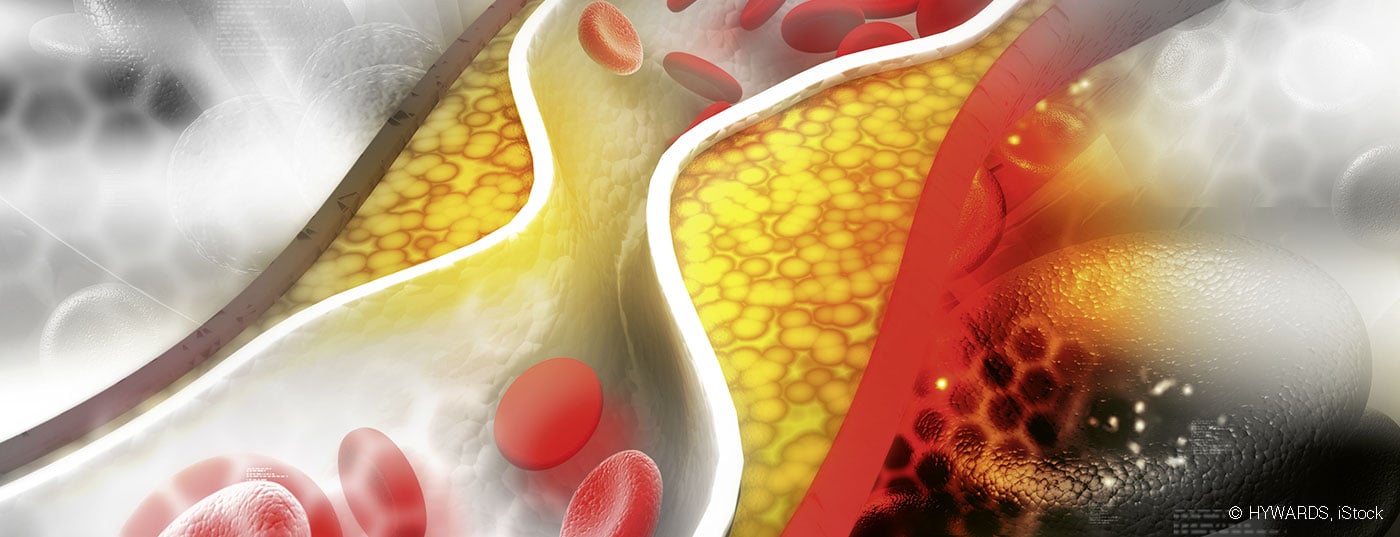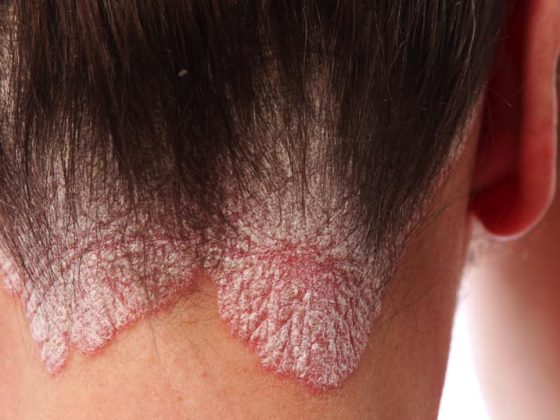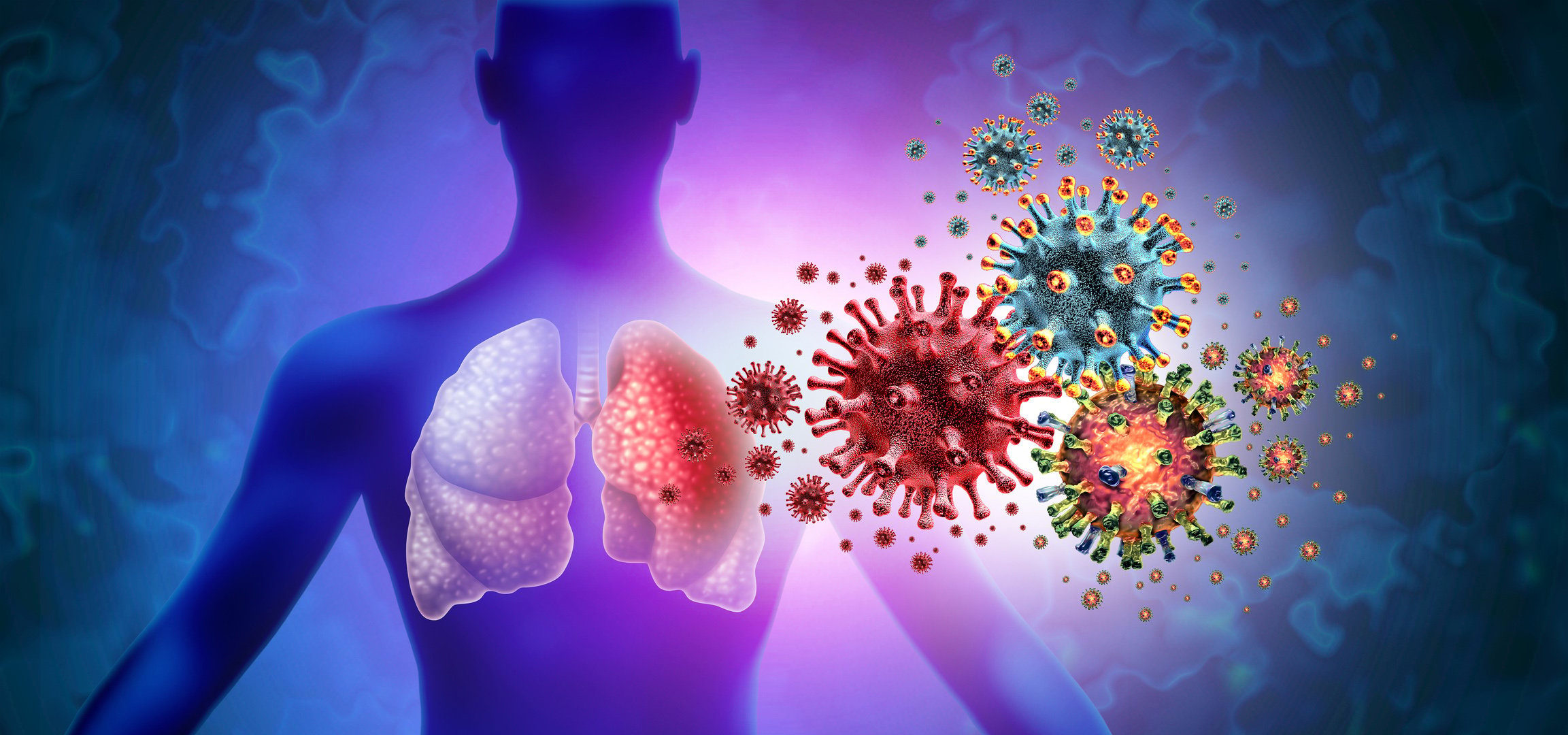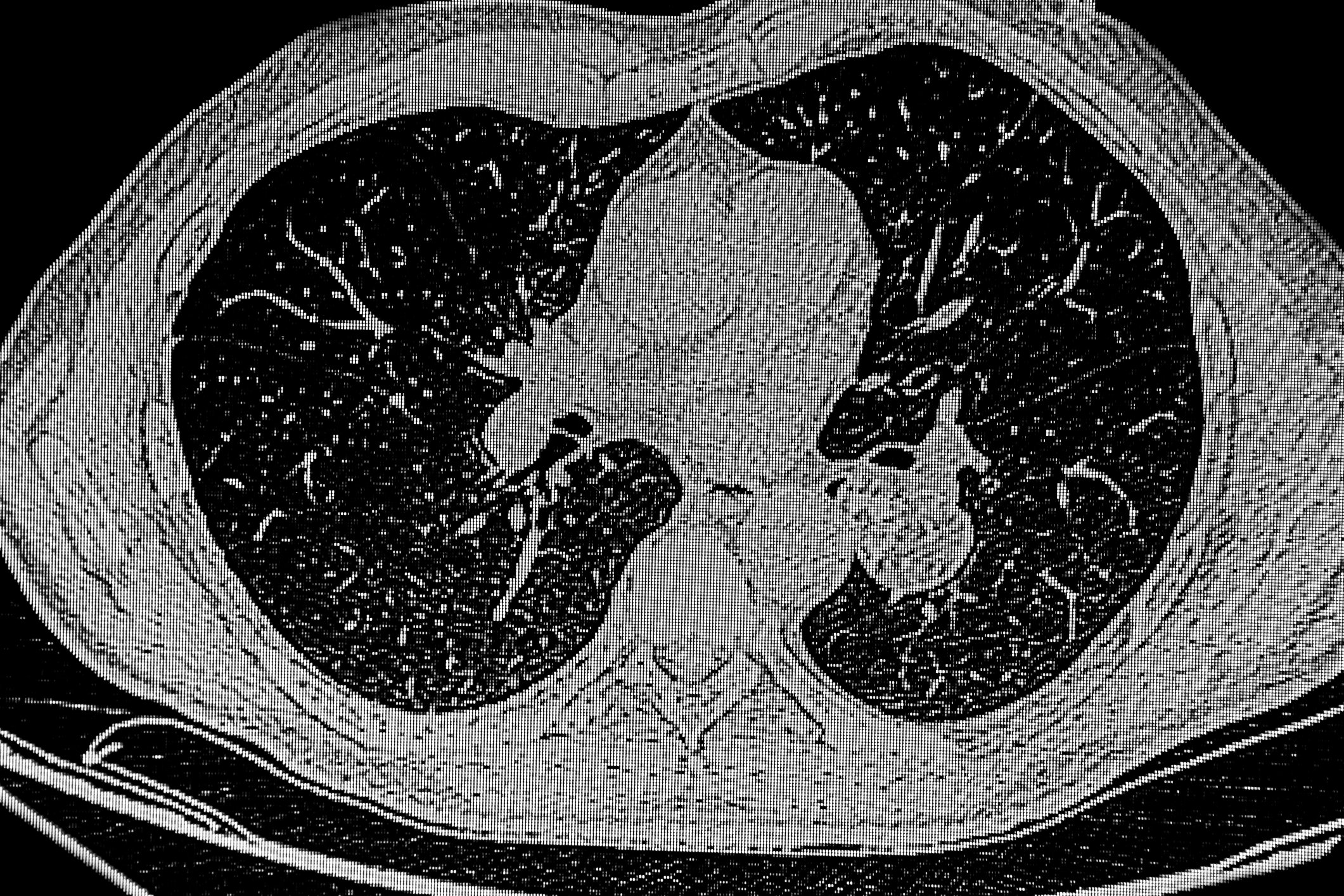The goal of lipid-lowering drug therapy is the prophylaxis of cardiovascular events. When statins and ezetimibe fail to achieve sufficient reductions in LDL cholesterol, or when one of these agents is intolerant, PCSK9 inhibitors are a highly effective adjunctive or alternative therapeutic option. This is shown by the results of the FOURIER and ODYSSEY studies. However, since these are monoclonal antibodies, the treatment costs are currently relatively high and the current data situation allows only limited conclusions about long-term efficacy.
Cardiovascular disease is the second leading cause of death in Switzerland after cancer [1]. Hypertension and LDL cholesterol levels (“low density lipoprotein cholesterol” [LDL-C]) are important risk factors that can be influenced. In the new ESC/EAS dyslipidemia guidelines published last year, the recommended target levels for LDL-C for high-risk (“very high risk”) patients were adjusted to <1.4 mmol/l and ≥50% reduction [2].
Screening recommended
Very high cardiovascular risk (AGLA score ≥10%) is defined as the presence of CHD/atherosclerosis, type 1 or type 2 diabetes with end-organ damage (retinopathy, neuropathy, or microalbuminuria), and/or GFR <30 ml/min/1.73 m2 [3]. In patients who have experienced two cardiovascular events in the past two years, the target value for LDL-C in the new guidelines was set at 1.0 mmol/l. “These values have been massively corrected downward because they say: the lower, the better,” explains PD Dr. med. Stefan Toggweiler, Co-Chief of Cardiology, Lucerne Cantonal Hospital [4]. Screening for LDL-C levels is recommended in men from 40 years and in women from 50 years. In low-risk patients, the prescription of a cholesterol-lowering drug is indicated from an LDL-C >4.9 mmol/l, said the speaker. If there is a positive family history, lipoprotein-(a) and apolipoprotein B-100 can be determined in addition to cholesterol levels. Dr. Toggweiler answers the question of how to achieve the LDL-C target values as follows: Since 85% of LDL cholesterol is synthesized in the liver, influencing it via diet is only possible to a very limited extent. The main drug treatment options used today are statins, ezetimibe, and PCSK9 inhibitors. In general, a reduction in LDL cholesterol of 1 mmol/l reduces cardiovascular risk by 20%.
|
PCSK9 inhibitors for cholesterol reduction
|
PCSK9 inhibitors as an alternative or adjunct to statins/ezitimib
Statins inhibit cholesterol synthesis in the liver and ezetimibe (e.g. Ezetrol®) inhibits the absorption of cholesterol via the intestine. PCSK9 inhibitors are agents that result in the inhibition of LDL receptor formation at the liver. As these are monoclonal antibodies with a complex manufacturing process, the costs are relatively high and administration is only possible subcutaneously (14-day injection). Currently available on the local market are Alirocumab (Praluent®) and Evolocumab (Repatha®). The BAG limit is the criterion that patients have an LDL level >2.6 mmol/l despite treatment with statins and/or ezetimibe [4]. Furthermore, PCSK9 inhibitors can only be prescribed by a specialist physician. In primary prevention, the use of PCSK9 inhibitors is reserved for high-risk patients. Safety and tolerability of alirocumab and evolocumab are generally good, according to the speaker. Apart from flu-like symptoms in some patients, there are hardly any side effects to worry about. Regarding efficacy, the results of the FOURIER randomized endpoint trial show that evolocumab has added benefit on top of standard therapy on future cardiovascular events [5]. A total of 27,564 patients with atherosclerotic cardiovascular disease and LDL-C levels of ≥1.8 mmol/l treated with statins were included. Study participants were randomly assigned to the verum condition (140 mg evolocumab, every two weeks or 420 mg once monthly) or the placebo condition. The differences between evolocumab and placebo as an add-on were highly significant at all measurement time points during the study period (p<0.001) and a significant reduction in the incidence of myocardial infarction and stroke was demonstrated [5]. These results show that it is a highly effective drug and the efficacy persisted over a long period (three years). The speaker points out that no reduction in mortality was detectable.
The efficacy of alirocumab was evaluated in the ODYSSEE study [6]. Compared with the FOURIER trial, the effects of LDL cholesterol lowering were less consistent over time, but a significant risk reduction of about 15% in both mortality and infarction rates was achieved with treatment with the PCSK9 inhibitor, the speaker said. Regardless of the class of cholesterol-lowering drugs used, he said, it is important to remind patients to take their medications regularly. In addition, Dr. Toggweiler recommends that all CHD patients refrain from smoking and incorporate regular exercise (approximately 4-6× weekly for 30 min) into their daily routine.
Source: FOMF AIM Update Refresher.
Literature:
- Federal Statistical Office (FSO): www.bfs.admin.ch/bfs/de/home/statistiken/gesundheit/gesundheitszustand/sterblichkeit-todesursachen/spezifische.html
- Riesen WF, et al: An annotated review of the AGLA. New ESC/EAS dyslipidemia guidelines. Swiss Med Forum 2020; 20(0910): 140-148.
- AGLA: Lipids and Atherosclerosis Working Group of the Swiss Society of Cardiology (SGK), www.agla.ch
- Toggweiler S: CHD – useful diagnosis and therapy. PD Stefan Toggweiler, MD, FOMF General Medicine, Update Refresher, 15.05.2020
- Sabatine MS, et al. (FOURIER): Evolocumab and Clinical Outcomes in Patients with Cardiovascular Disease. NEJM 2017; 376(18): 1713-1722.
- Schwartz GG, et al. (ODYSSEY): Alirocumab and Cardiovascular Outcomes after Acute Coronary Syndrome. NEJM 2018; 379(22): 2097-2107.
HAUSARZT PRAXIS 2020; 15(11): 52-52











